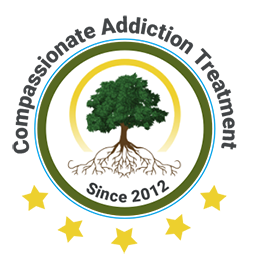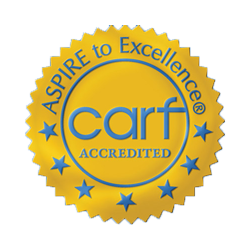Deciding to stop using drugs or alcohol is courageous — but the reality of withdrawal can feel overwhelming. If you’ve ever thought, “I want to stop, but I’m scared of how I’ll feel,” you're not alone.
Withdrawal can stir up intense physical symptoms, emotional highs and lows, and mental fatigue. But with the right coping strategies, you can move through it safely — and stay on the path to recovery. If you’re in Gilbert, Arizona, and facing this journey, support is closer than you think.
In this guide, we’ll share simple, research-backed tools to help you cope with withdrawal symptoms, regain stability, and move forward with confidence.
Quick Guide: What We’ll Cover
- Understanding Withdrawal: Why It Happens
- 11 Practical Coping Mechanisms for Withdrawal
- When Withdrawal Becomes Dangerous
- How Outpatient Support Can Help You Recover
- FAQ: Coping with Withdrawal
Understanding Withdrawal: Why It Happens
Withdrawal is your body and brain adjusting to life without substances. Over time, drugs and alcohol change how your brain functions. When the substance is removed, the body needs to recalibrate — and that can lead to uncomfortable symptoms.
Common symptoms of withdrawal:
- Fatigue or insomnia
- Anxiety or panic attacks
- Sweating, chills, or nausea
- Mood swings or depression
- Cravings and irritability
The good news? These symptoms are temporary, and they can be managed with the right support and preparation.
For a closer look at how substances impact your physical health, read Understanding the Impact of Alcohol on Physical Health.
11 Practical Coping Mechanisms for Withdrawal
Here are proven strategies to help you cope with withdrawal during early recovery, especially if you're in an outpatient program:
⇒ Deep Breathing & Mindfulness
Helps calm racing thoughts and regulate your nervous system.
⇒ Stay Hydrated & Eat Nutritious Foods
Proper nutrition helps stabilize your mood and energy.
⇒ Create a Simple Routine
Structure builds safety and predictability in your day.
⇒ Craving Journaling
Write down what triggered the craving and how you responded.
⇒ Walk, Stretch, or Move Gently
Exercise supports your body’s detox process and improves mood.
⇒ Listen to Calming Music or Nature Sounds
Soothing audio reduces agitation and improves sleep quality.
⇒ Lean on a Supportive Person
A friend, mentor, or counselor can help you through rough moments.
⇒ Practice Self-Talk
Replace “I can’t do this” with “This is hard, but I’m doing it.”
⇒ Use Distraction Tools
Puzzle books, podcasts, or drawing can redirect your focus.
⇒ Celebrate Small Wins
Every sober hour or day is a big step — track your progress.
⇒ Join a Group or Virtual Meeting
Peer support can remind you: you're not doing this alone.
These strategies work best when customized to your lifestyle and personality — and used consistently.
You can also explore more in our guide: How to Overcome Withdrawal Symptoms
When Withdrawal Becomes Dangerous
Some symptoms may require immediate medical attention. Always listen to your body.
Seek urgent help if you experience:
- Seizures or tremors
- Hallucinations or confusion
- Rapid heart rate or chest pain
- Intense vomiting or dehydration
You do not need to “tough it out” alone. Even if you’re not in an inpatient detox facility, outpatient professionals can monitor symptoms and step in if needed.
For more context, see Post-Acute Withdrawal Syndrome (PAWS)
How Outpatient Support Can Help You Recover
At Renaissance Recovery Center, we specialize in helping people manage withdrawal without needing to leave their lives behind. Our Intensive Outpatient Program (IOP) is designed to offer the flexibility, structure, and expert guidance you need.
We offer:
⇒ Teletherapy sessions for support from the comfort of home
⇒ Personalized recovery plans tailored to your physical and emotional needs
⇒ Group and individual therapy to build resilience and prevent relapse
⇒ 24/7 availability, so you’re never alone during a crisis
“You don’t have to check into a hospital to start healing. At Renaissance, we walk with you every step of the way — while you keep living your life.”
Explore more: Outpatient Drug and Alcohol Treatment for Gilbert, Arizona
FAQ: Coping with Withdrawal
Finding Strength Through Withdrawal and Beyond
Withdrawal is challenging — but it’s not forever. With the right tools, mindset, and support system, you can manage symptoms, stay grounded, and move forward.
Whether you're navigating this journey yourself or supporting someone you love, remember: recovery is possible, and you're not alone. Explore your options, ask questions, and take that first step.
💬 Not sure if your symptoms are normal? Feeling overwhelmed?
Our team is here 24/7 to listen, guide, and support you. Contact Renaissance Recovery Center — We’re Here When You’re Ready
Want more tips and expert insights? Visit our Addiction Recovery Blog for ongoing guidance.

























